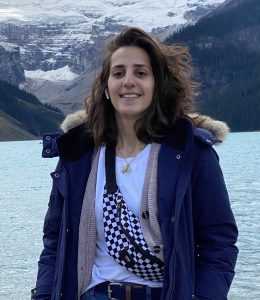Spring 2025
Doctor of Philosophy (PhD)
Choong Kim
Thesis title: Monetary value of unpaid care in Canada: A comparison of valuation methods
Choong's dissertation research focused on quantifying the hidden economic cost of unpaid care work performed by family members in Canada. This work revealed the substantial contribution family caregivers make to the Canadian economy, with an estimated value ranging from $45 to $154 billion annually as of 2018, depending on the monetary valuation method used. Additionally, his findings contribute to understanding economic inequality between men and women in Canada, as women provide the majority of caregiving time. This research provides policymakers with evidence-based insights into hidden economic costs and informs broader discussions about public investment in care.
Choong appreciates the research experience he has gained in the department, having been involved in multiple research projects. He was able to participate in the entire research process, from the grant submission stage to the final report submission.
He is currently active in the job market, aiming to build his career in data analytics and continue his research in academia.

Master of Arts - Material Culture
Alexis De Villa

Chloe Simmons
Thesis Title: I can make that’: An Investigation of Sustainability, SDG 12 and the Textile Crafts
For her thesis research, Chloe embarked on an interdisciplinary project exploring the behaviours and perceptions of textile crafters. Contributing to several fields of study, including material culture studies, the growing interdisciplinary field of fashion studies, and human ecology, Chloe’s research unpacks how makers’ production and consumption habits relate to sustainability. Additionally, the project engages with the United Nations Sustainable Development Goals (SDGs), grappling with the methodological challenges of integrating the large-scale, global concept of SDG 12 into a qualitative study of individual-level actions and revealing the need for more tailored frameworks for this purpose. Findings of Chloe’s thesis demonstrate several ways in which making practices open up alternatives to, and create independence from, mass-produced goods, while also emphasising factors that make craft an imperfect solution to the sustainability concerns of the fast fashion industry.
Two valuable experiences stand out to Chloe as important takeaways from grad school. First, is the human ecology community she has cultivated by getting to know and working with like-minded individuals from all areas of the department. Equally, Chloe is incredibly grateful for the opportunities she has had in grad school to cultivate her love of teaching and the mentors who have fostered this interest.
Chloe’s long-term vision includes returning to her studies to pursue a PhD. Currently, Chloe is working as a Junior Policy Analyst with a local non-profit organisation, and is looking forward to returning to the Department of Human Ecology as a sessional instructor for the 2025-2026 academic year.
Master of Science - Family Ecology and Practice
Navdeep Kaur
Project title: Best practices for caregiver capacity building
Navdeep's research, conducted for the Ministry of Children and Family Services, Government of Alberta, focused on exploring best practices for caregiver capacity building. The aim was to identify effective strategies that support diverse caregivers in enhancing their skills, knowledge, and confidence in child development. Through a detailed literature review, she discovered significant gaps in the availability and accessibility of services for male parents and Indigenous caregivers—groups often underrepresented in mainstream support programs. To address this, Navdeep developed an evaluation criteria framework that serves as a benchmark to assess the effectiveness of caregiver support programs. This tool can be used to guide funding decisions and improve the design and delivery of future initiatives, ensuring they are inclusive, culturally responsive, and outcomes-focused.
The most valuable experience during her graduate studies was engaging with diverse communities through her practicum and research. She had the opportunity to explore how government programs support diverse caregivers, which taught her the importance of culturally responsive practice and the necessity of designing services that reflect the lived experiences of families. This experience deepened her commitment to inclusive policy-making and respectful collaboration.
Currently, Navdeep is working as a volunteer at the Zebra Child Advocacy Centre. In the future, she is looking for a career where she can apply her knowledge in practice and support families and communities.

Andrew Magnaye
Project title: Caring Beyond Borders: Transnational Family Caregivers
Andrew dedicated his research to exploring the experiences of family members caring for loved ones across international borders. This topic has always been a reality for his family, as they continue to support their family in the Philippines. However, as his research revealed, these care exchanges extend far beyond the mere exchange of money or material goods; they are expressions of love, longing, and profound gratitude. Andrew recognised that it takes a tremendous toll on family members to be separated from one another, especially when older relatives require care. The feelings of guilt and the sense of not being able to do enough due to the distance separating them were recurring themes in his work. He observed that transnational family caregivers will continue to provide care from countries of destination to family members and friends in countries of origin in an increasingly global and connected world.
His most valuable experiences came from meeting many different people from diverse backgrounds and life experiences. The department was always filled with colleagues who brought pieces of themselves to their programs. Andrew appreciated every conversation, lunch hour, and coffee meeting he was fortunate enough to enjoy with everyone throughout his program.
Currently, Andrew serves as a Senior Policy Analyst with the Government of Alberta in the Ministry of Assisted Living and Social Services. He hopes to continue advocating for family caregivers within government, non-profit, and healthcare spaces as the backbone of the care system.
Andrew wants to extend a special thank you to Jacquie, Rachel, and Rhonda, who, during a time of great grief, uncertainty, and loss, showed up for him in ways he will never forget.

Master of Science - Textiles and Clothing

Emily Prefumo
Project Title: Analysis of Qiviut Fibres: An Investigation into the Surface Morphology, Diameter Measurement, Breaking Strength, and Thermal Insulation of Qiviut from Wild Muskoxen
Emily’s research focused on determining the properties of qiviut fibres (muskox wool), including the fibre surface morphology, diameter measurement, individual fibre strength, and thermal insulating ability. For measuring the fibre diameter and strength, fibres were sampled from five different areas on two different muskox hides (one harvested in the spring, one in the winter) to determine whether the area the fibre is harvested from and the season from which it was collected during directly impacts the fibre diameter size and strength. Analysis of the fibre surface revealed qiviut fibres to have shallow, long scales with a unique shape similar to that of cashmere. The diameter measurements and strength testing results revealed qiviut fibres to have a fine diameter size (between cashmere and camel hair) and to be relatively strong for its fineness, the shoulder regions being overall thicker and stronger than the other areas assessed. The winter hide had overall thicker and stronger fibres than the spring hide. The thermal insulation test results indicated that qiviut has a similar insulating value to that of alpaca wool, making their insulating ability about equal.
During her studies, Emily valued all of the skills, knowledge, and experiences she had gained over the course of her program through completing her research, attending classes, and working as a TA. She also valued the opportunity to meet and work with others who shared similar passions and interests in Human Ecology, as well as all the friendships she made along the way.
Emily plans to continue pursuing her passion in textile science research. She is currently working on getting her research paper on qiviut fibre published in a journal.

Mansi Sharma
Project Title: The Barriers and Interests in Repurposing Used Traditional Embellished Indian Garments of Canadian Indian Gen Zs
Mansi's research explored the barriers and interests Indian Canadian Gen Zs face in upcycling their unwanted traditional embellished Indian garments. Using a Human Ecological framework, the study combined experiential practice—upcycling two personal garments—with interviews and surveys of Gen Z participants in Edmonton. Findings revealed that although many Gen Z individuals are environmentally conscious and supportive of sustainability, upcycling is hindered by emotional attachment, a lack of resources or skills, and cultural stigma surrounding reused garments. Participants expressed a greater willingness to upcycle non-sentimental items, especially into functional products such as bags. The study highlights a growing openness among Indian Gen Zs to repurpose their own garments as a compromise between sustainability and cultural identity. It suggests that targeted initiatives, such as community workshops or government-supported upcycling programs, could empower this demographic to engage in sustainable practices while preserving cultural heritage and reducing textile waste.
Mansi found the most valuable experiences during graduate school to be the opportunity to organise get-togethers with other graduate students and learn about each other’s research topics. She appreciated being able to explore a research area with limited existing literature, which allowed her to contribute new insights. Additionally, she valued the experience of presenting her research findings and inspiring participants to take an interest in, or actively participate in, upcycling their Indian embellished garments.
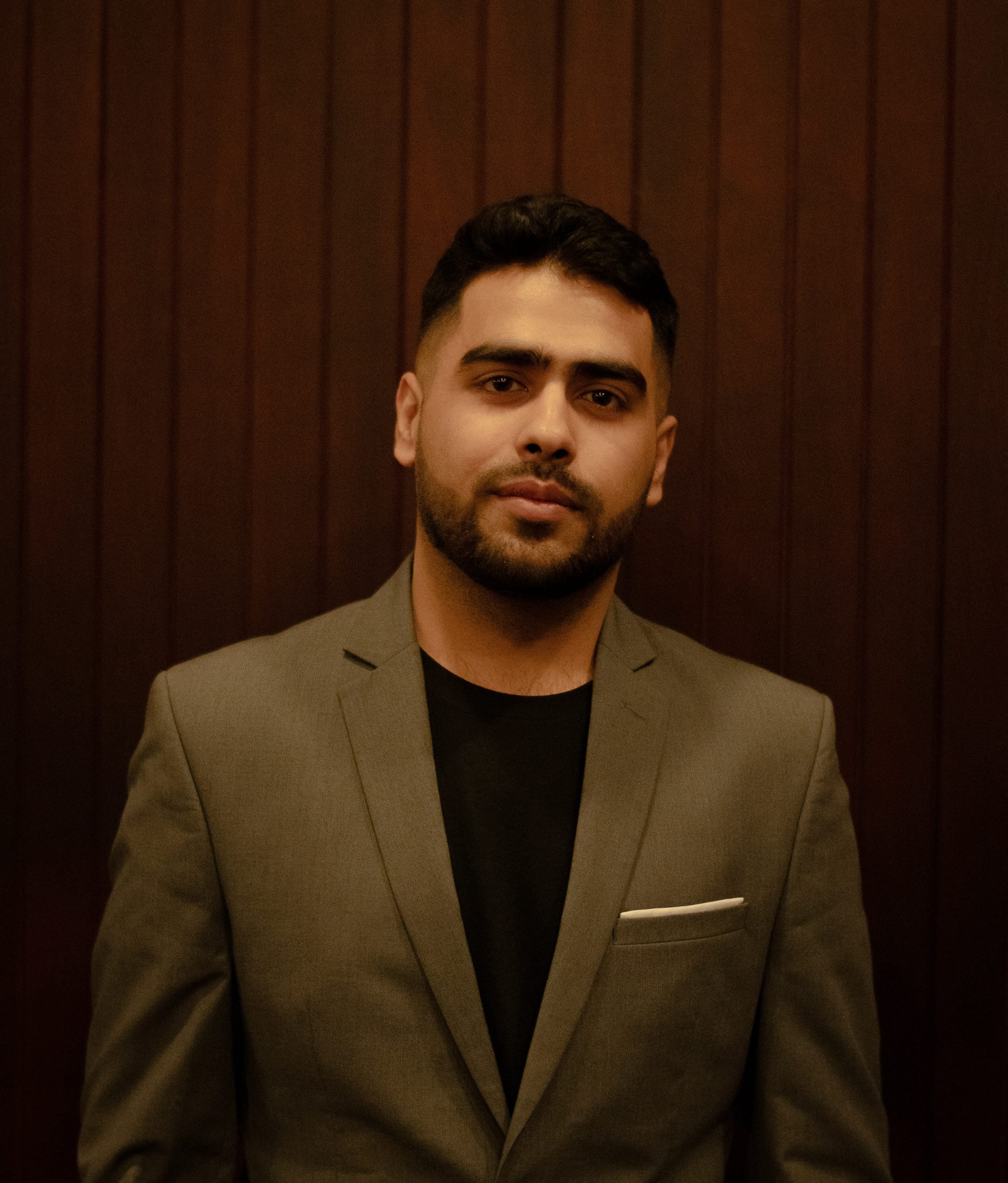
Utkarsh Sharma
Project Title: Textile Sorting: Assessing Colour of Clothing Donations and Implication for Textile Recycling
Utkarsh's research investigated how textile colour impacted recycling outcomes using clothing donations from thrift stores in Alberta and Saskatchewan. He examined colour distribution, fabric disruptors, textile construction, and fibre composition. His findings suggested that effective colour sorting could reduce re-dyeing steps, enhance recycling efficiency, and contribute to a more sustainable approach to managing textile waste.
His most valuable experience in grad school was the opportunity to work with wonderfully motivated colleagues and mentors. Collaborating with these passionate individuals allowed him to learn, challenge his thinking, and grow both academically and personally. Their drive and support not only sharpened his skills but also fostered a strong sense of community and resilience that continued to inspire his professional journey.
At that time, Utkarsh was actively seeking opportunities in the industry. He used the skills and insights he gained during grad school to bridge the gap between academia and real-world applications. He focused on roles that enabled him to work with passionate, innovative teams dedicated to sustainability and forward-thinking solutions.
Fall 2024
Doctor of Philosophy (PhD)
Md Rashedul Islam
Thesis title: Thermophysiological Comfort of Sportswear Fabrics
Rashedul's PhD research investigated the thermal comfort properties of sportswear fabrics, focusing on heat and moisture transfer mechanisms within the skin-cloth-environment system. Standard test methods were revisited to enhance measurement accuracy and reliability. A novel test protocol was developed to measure the thermal touch perception of fabrics when they are in the wet state. The impact of microclimate thickness and orientation, along with airflow velocity and direction, on dry thermal resistance and water vapour transmission was analysed. Relationships between fabric physical properties and thermal comfort metrics—thermal effusivity, dry thermal resistance, and water vapour transmission—were evaluated. A comprehensive database of comfort-related properties was created to support the development of a thermophysiological comfort prediction model. This study offers valuable insights for advancing sportswear fabric testing and optimising thermal comfort performance.
Rashedul said that the most valuable part of grad school was immersing himself in the world of textile science research. Along the way, he says he developed critical thinking skills and sharpened his academic writing, both of which pushed him to approach problems more thoughtfully and communicate his ideas clearly. He says these experiences were incredibly rewarding and have shaped both his personal and professional growth.
Currently, Rashedul is working at the intersection of textiles and biotechnology, focusing on sustainable solutions for the industry. His work involves developing eco-friendly dyes and pigments derived from microorganisms, along with innovative printing processes. He says it is exciting to use biotechnology to address environmental challenges and create products that are both functional and sustainable. In the future, he hopes to deepen his involvement in this field by leading research that combines biotechnology and material science to develop novel, sustainable solutions. Rashedul is also passionate about collaborating with others in the industry to drive meaningful change and inspire the next generation of researchers to prioritise sustainability in their work.

Master of Arts - Material Culture
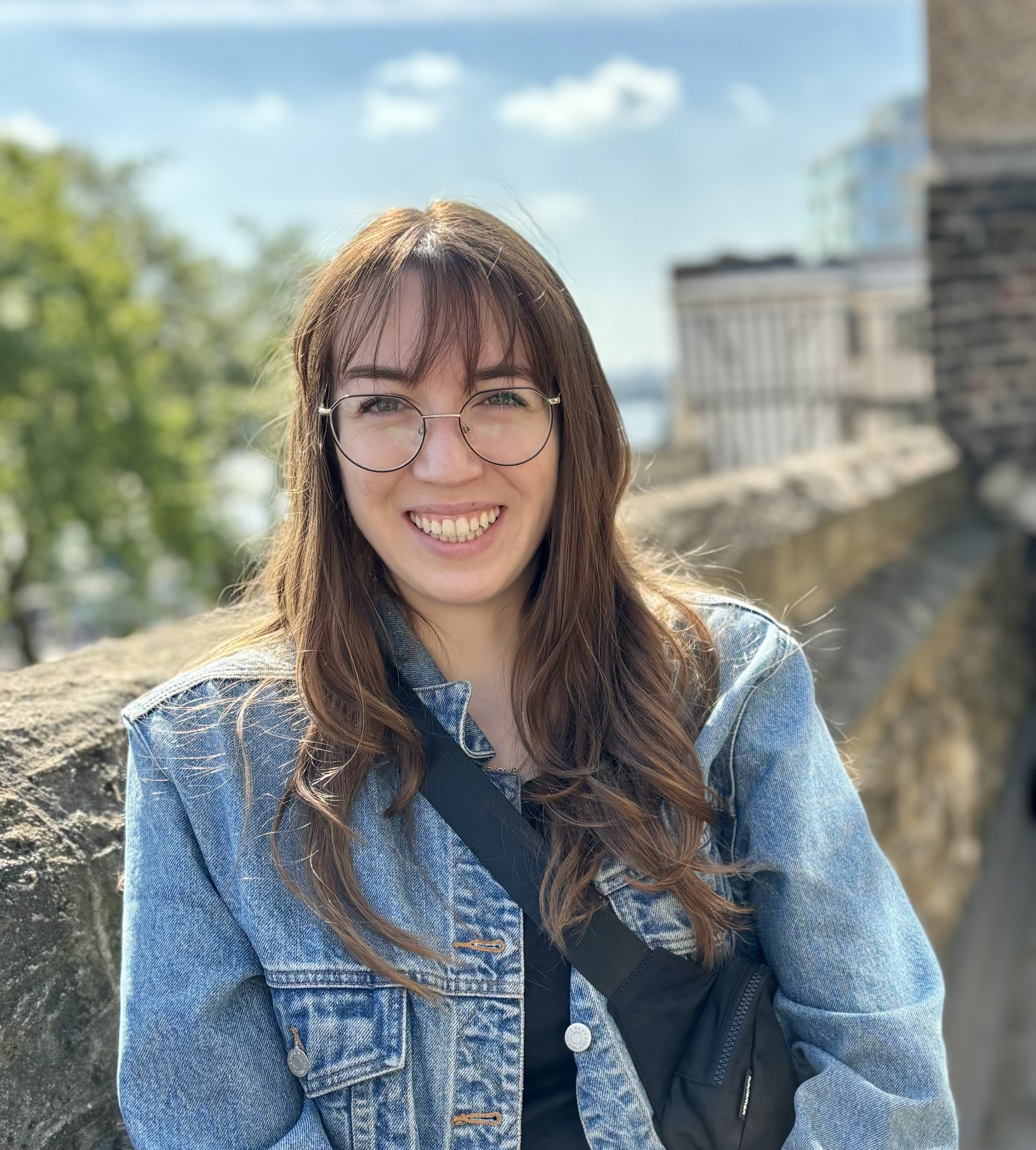
Emma Carr
Thesis Title: Detangling Hairwork: A Study of Victorian Mourning Practices
Through an object analysis of a hair bracelet located in the Anne Lambert Clothing & Textiles Collection, Emma set out to answer the research question: “What can an object analysis of a nineteenth-century mourning hair jewellery piece tell us about Victorian mourning practices?” The object analysis produced three key findings: The bracelet was likely made and worn between 1849 and 1863 as a mourning or fashion piece; Hair bracelets were considered a second or half mourning custom from 1849 to 1850 but merged into fashionable attire by 1858; and hair bracelets began waning in popularity in 1863, and by 1871, hair jewellery was being advertised primarily as fashionable accessories. The findings may suggest that the observed growth in popularity of wearable hairwork after the 1861 death of Prince Albert, while typically contributed to the use of hair jewelry as mourning objects, could better correspond to the use of hair jewelry as fashion objects.
Emma’s most valuable experience was learning from a variety of different professors. The courses and the process of writing her thesis taught her how to best approach a problem, how to think critically, and how to conduct research. These are all skills Emma says she will carry with her throughout her career and personal life.

Lucia Gago Ross
Thesis Title: A Practice-Based Study of Students' Lived Experience in Ernesto Aroztegui's Weaving Workshop (mid 1960s-mid 1980s)
The textile movement of the 1960s to the 1980s was a remarkable phenomenon in Uruguay, a country with no prior known textile tradition. Within the context of sociopolitical upheaval that characterized those years Ernesto Aroztegui’s weaving workshop had a central role. Lucia's research questions were: What are Aroztegui’s former students’ lived experiences of his workshop? How does my lived experience in an iteration of that workshop correspond with those lived experiences? A semi-structured interview was designed to access the lived experience of the participants, and an autoethnography allowed me to consider my own lived experience. This two-fold approach opened a space of reflection around the textile art movement and its legacy and brought closer to present time the textile art movement. The fluidity inherent to lived experience makes the outcome of this research project not a static thing, but an opening into spaces of discussion about the textile art movement and the sense of community textile practice provides.
When asked about her most valuable experience during her MA Lucia said "It is hard to chose just one, but I would say being invited by my supervisor to be a TA in one of her classes was a wonderful experience. Sharing with others through teaching is something that I thoroughly enjoy—before coming to the University of Alberta I was already working as a TA in my university back home. Being able to be part of a class in a different country and familiarize myself with the particularities of a teaching environment somewhat different to what I was used to was an extremely enriching experience. Conversing with the students, sharing my experience with the textile techniques they were learning, seeing what they came up with and how they explored their creativity are all experiences I wholeheartedly value."
Lucia is back at her home university to resume teaching and research activities there, and continuing defining her ideas for a PhD in the near future. "Of course parallel to this my textile-making will continue, exploring techniques and ways of interacting with materials and tools. In particular I am looking forward to wrap up the making of a warp-weighted loom I had on hold for the two years I was at the University of Alberta", Lucia says.

Chiara Power
Thesis Title: The White Linen Shirt and Shift in Early Colonial Eastern Woodlands North America
Chiara’s thesis examined the white linen shirt and shift in Eastern Woodlands North America during the 17th and 18th centuries and how these garments affected the power dynamics between settler and Indigenous communities. A material culture analysis was performed on an 18th century shirt and shift from the Anne Lambert Clothing and Textiles Collection. The letters of Marie de l’Incarnation and four oil portraits by John Verelst were also examined to contextualize the artifacts and examine portrayals and discussion around the objects. The research demonstrated that the cultural, hygienic, economic, and policial meanings of linen undergarments in European dress systems were challenged by Indigenous dress practices but also allowed a space for settler colonial rhetorics to be propagated.
Chiara found the people the people she met to be the most valuable part of her grad school experience. Discussions with her supervisor, professors, fellow students, and fellow TAs were some of her best educational experiences.
Master of Science - Family Ecology and Practice
Emily Hong
Emily's research focused on intimate partner violence (IPV) and its impact on children, examining how trauma affects their emotional, cognitive, and social development, as well as strategies to promote resilience and recovery.
Yanchi (Bernard) Mou
Project title: Everyday Life Experiences of Chinese Immigrant Families with Young Children
The central purpose of Yanchi’s study was to explore the challenges and difficulties that Chinese immigrant families with young children encounter and the resources and strategies they use to manage these challenges and difficulties from multiple family members’ perspectives. Thematic analysis was used to identify the challenges and difficulties experienced by four participating families, the effects of these challenges and difficulties on the families and their members, and the resources and strategies they used to manage these challenges and difficulties. The findings indicate that the participating families experienced various challenges and difficulties related to child-rearing, disagreements between family members, financial strains, and employment difficulties. These challenges and difficulties had some negative influences on family members’ daily routines, mental and physical health, parent-child relationships, couple relationships, and in-law relationships. Participating families and their members used individual, family, and community coping resources and strategies to manage their daily challenges and difficulties. The findings of my studies provide practical implications for services and programs tailored to Chinese immigrant families with young children.
During his studies, Yanchi valued having the chance to work/study with amazing people who are passionate about children, youth, and family. He says he had the chance to learn many different family theories and models, practice his academic written skills, critical thinking skills, and research conducting skills, and discuss and learn from various perspectives from other grad students’ backgrounds. In addition, the professors from the Human Ecology Department were all approachable, friendly, and professional. Without their help (especially Dr. Williamson), he says he doesn’t know if he could have finished this degree!
Yanchi is working as a child and youth counsellor with the Island Health Authority. In the future, he will keep working and advocating for the welfare of children and youth.

Vanessa Osei Bonsu
Project title: Gender-Based Violence in Tanzania
Vanessa’s research examined the experiences of gender-based violence (GBV) in rural Tanzania, as well as the impact of Empowered Worldview, a mindset change program from World Vision, on the experiences of women and girls in rural Tanzania who have experienced GBV. The findings revealed themes related to gender-based violence, including the influence of culture, alcoholism, economic abuse, sexual violence, and wife abandonment. The findings of her study highlight the need for a delicate balance between education, legal enforcement, and cultural change to effectively combat gender-based violence.
When asked what was one of her most valuable experiences at graduate school was Vanessa stated it was meeting new people from different backgrounds and with different perspectives. This has helped her to think more critically about how she engages with others.
Currently, Vanessa is pursuing a PhD in Family Science at the University of Alberta.
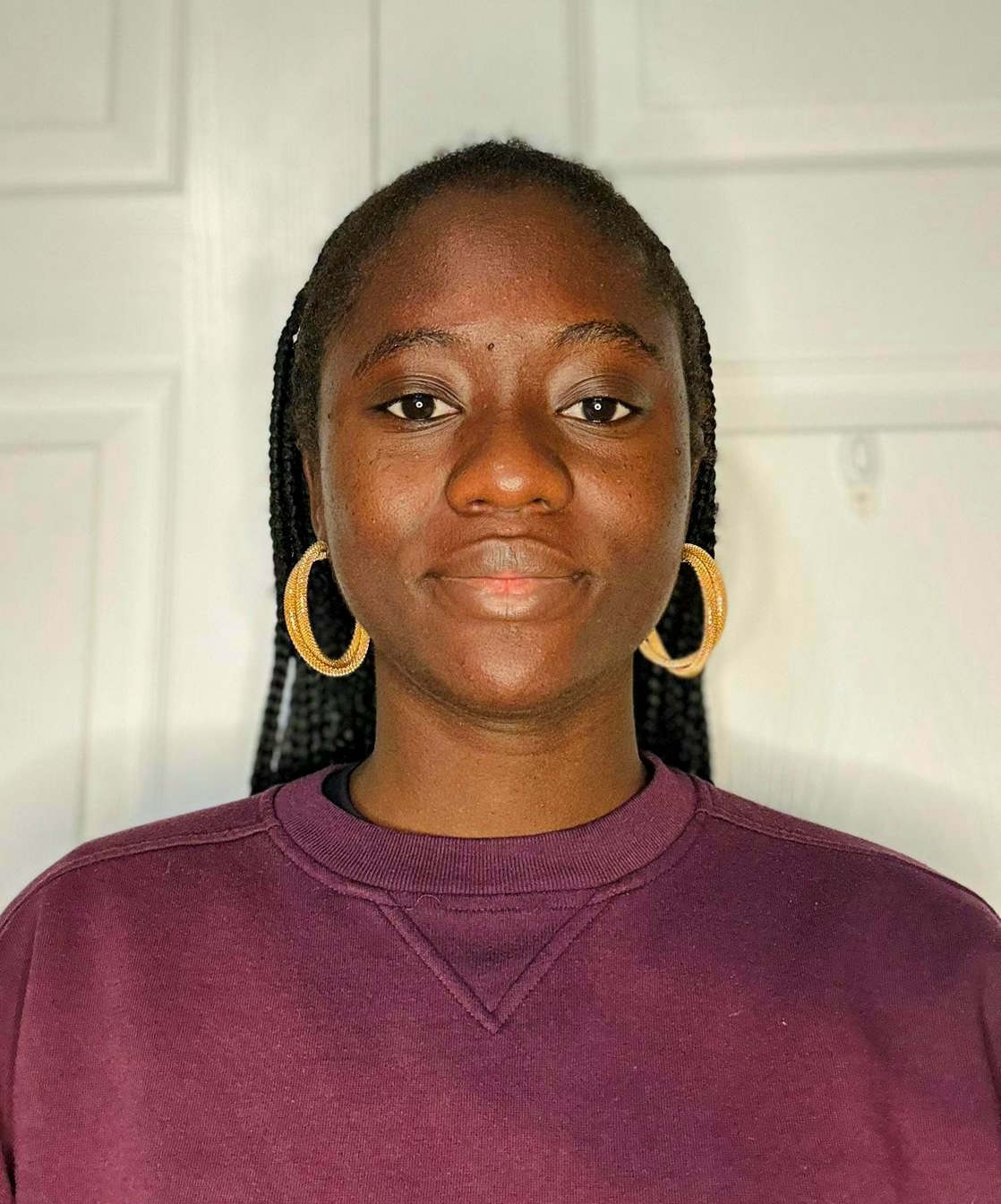
Master of Science - Textiles and Clothing

Shan Wing Ip (Jessica)
Project Title: Conservation at the Royal Alberta Museum
Jessica completed a practicum with the Conservation Team at the Royal Alberta Museum, focusing on microfade testing, an advanced technique used to determine safe loan and display durations for artifacts. She also gained practical experience with ATR-FTIR spectroscopy and treated both a Western book and an Indigenous shirt and leggings. Her practicum enhanced her understanding of diverse materials, including plastics and glass, and techniques such as fibre analysis, Oddy testing, smudging of Indigenous objects, and mould remediation. Additionally, participating in conference and site visits with the RAM conservation team broadened Jessica’s professional network and provided valuable insights into current trends and career opportunities in museum conservation. This comprehensive experience enriched her technical expertise and strengthened her commitment to cultural heritage preservation.
Throughout her graduate studies and practicum, Jessica is deeply grateful for the skills, knowledge, and experiences she gained, which have significantly contributed to her personal and professional growth. Overall, her graduate school journey has prepared her to become an emerging conservator or conservation scientist, equipping her with the technical expertise and professional exposure essential for a successful career in the field.
Jessica recently completed a contract as a collection assistant and conservator at the Anne Lambert Clothing and Textiles Collection, where she gained valuable hands-on experience. She plans to explore diverse opportunities in conservation across museums, archives, and heritage sites to further expand her skills and knowledge. With a commitment to preserving the cultural legacy of physical artifacts, Jessica combines technical expertise, manual dexterity, and artistic sensitivity to ensure history is meticulously conserved and accessible for future generations.
Spring 2024
Doctor of Philosophy (PhD)
Md Saiful Hoque
Thesis title: Investigation of the Aging of High-Performance Fabrics Used in the Outer Shell of Firefighters’ Protective Clothing
Saiful Hoque's PhD thesis investigates the accelerated aging behaviour of high-performance outer shell fire-protective fabrics used in firefighters’ protective clothing. The study focuses on the thermal, hydrothermal, and photochemical aging of fabrics made from blends of different high-performance fibres. The research examines the aging mechanisms and kinetics to understand the significant loss in mechanical and barrier performance these fabrics experience over time. Through controlled aging experiments simulating real-life conditions, the study reveals diverse responses among different fabric blends. Notably, para-aramid/PBI blends were highly susceptible to hydrothermal aging due to acidic water interactions, whereas meta-aramid and aramid copolymers showed good resistance. A major achievement of this PhD is the groundbreaking finding identifying the causes of premature hydrothermal aging behaviour in para-aramid/PBI blended fabrics, solving a long-standing puzzle in the industry. Saiful's research advances the understanding of fabric performance in extreme conditions, contributing to the development of enhanced protective gear for firefighters and similar professions.
Saiful recognized that he gained the most valuable experience during grad school while working on various research projects alongside his own PhD research. This allowed him to expand his expertise, acquire diverse skills, and collaborate with different teams, significantly enriching his academic and professional growth.
Immediately after his defence, Saiful joined the Impact Lab in the Department of Mechanical Engineering at the University of Alberta. Looking ahead, he plans to focus on advancing smart fiber technologies, with the goal of introducing transformative innovations to the medical textile industry and the field of soft robotics.
Saiful extends special thanks to the Graduate Program Committee of the Department of Human Ecology for providing him with the volunteering opportunity, which he considers one of his best volunteering experiences. Saiful also wishes to thank all the professors in the department for being so welcoming and super helpful when approached.

Elena Kosareva
Thesis Title: Development of Wildland Firefighters’ Protective Clothing with Improved Thermal Protection
Elena's research was focused on the development of a novel prototype shirt design for wildland firefighters that includes an inherently flame-resistant 3D spacer fabric incorporated into the areas prone to burn injury (e.g. upper front and back torso, upper arms, and neck). The porous structure and resistance to compression of the 3D spacer fabric trapped still air and provided additional thermal protection in the areas at risk without dramatically increasing thermal stress. The prototype shirt was exposed to flames for 4 seconds using a flash-fire/instrumented manikin system. The novel design showed significant improvements in thermal protective performance compared to the shirt design that wildland firefighters currently use. It decreased the total burn area of the manikin surface by approximately 6%. The 3D spacer fabric substantially impeded high amounts of thermal energy generated during the flame engulfment from transferring through the fabric system in the areas prone to burn injury.
Elena greatly values her experience as a graduate student in the Human Ecology program. Grad school helped her to learn from great academic mentors and professors, grow as a scientist and researcher, gain leadership experience from teaching and volunteering work, and meet amazing friends among fellow students. Elena strongly believes that this experience contributed to her professional and personal growth, opening many opportunities in the future.

Laura Munevar-Ortiz
Thesis title: Effects of Accelerated Aging on the Performance of Moisture Barriers used in Firefighters’ Protective Clothing
Laura’s research investigates the impact of accelerated aging, including thermal, hydrothermal, and ultraviolet exposure, on the tear resistance, water vapour transmission rate (WVTR), and apparent contact angle properties of three common moisture barriers used in firefighters' protective clothing. Through extensive testing and analysis, she observed significant changes in tear resistance, WVTR, and surface characteristics following different aging treatments. Factors such as base fabric structure, adhesive configuration, and the presence of flame-resistant polyurethane coatings were found to influence the performance of these moisture barriers. High-speed imaging and advanced analytical techniques provided insights into tearing behaviour and material degradation mechanisms. Laura’s findings not only enhance our understanding of moisture barrier performance but also offer valuable guidance for future research and development efforts to improve firefighter safety through more durable and effective protective clothing.
The most valuable experience during grad school was meeting incredible people. Their diverse perspectives and expertise enriched my academic journey and encouraged personal growth.
Currently, Laura is focused on continuing to expand her knowledge and skills while exploring various opportunities for personal and professional growth. Alongside this, she is working on a personal project that was paused during her doctoral studies.
Laura sends a heartfelt thank you to the University of Alberta, her friends, and mentors for their unwavering support.

Master of Science - Aging
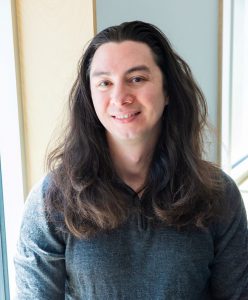
Jonathan Lai
Thesis Title: The Risks of Workplace Ageism for an Ageing Labour Force
Ageism in the workplace represents a growing concern in Canadian society and a productivity risk for the aging labour force. Jonathan’s thesis research used a conceptual framework that emphasized psychological health and well-being to understand how prevalent age discrimination was in the context of Canadian workplaces and if the experience of workplace age discrimination was having a negative effect on worker engagement in Canada. Using a nationally representative sample of 6,956 Canadian workers, 2% of all part-time and full-time workers aged 25 and older reported at least one instance of workplace age discrimination in the past 12 months. Correlation and regression analysis indicated that age discrimination was not having a negative impact on worker engagement. Future research will want to better monitor trends on workplace age discrimination as the actual prevalence in Canada is likely higher than the proportion estimated in his study.
For Jon, the opportunity to serve as a department councillor for the Graduate Student’s Association led to a greater understanding of issues that affect the university community. Learning how to learn and developing his emotional intelligence were the most essential skills he gained from his graduate program.
At present, Jon is employed as a Research Analyst with the Edmonton Arts Council. He also continues to write poetry. His poems have been published in Happiness Reflected: A Community Poetry Project Vol. 1, Boyle McCauley News, NorthWord Literary Magazine, and Capital City Press Anthology Vol. 4 (forthcoming).
Master of Science - Family Ecology and Practice
Olivia Neufeldt
Olivia completed a practicum placement at the Edmonton Social Planning Council (ESPC), a non-profit organization that aims to educate the community and push for social change by conducting social research on issues such as poverty, housing, and food security within Edmonton. During this placement, Olivia contributed to a variety of different research projects, exploring topics such as monetary support for people who are homeless, child care within Alberta, and tax filing support for low-income Edmontonians. Olivia’s independent project took the form of a research report examining 2SLGBTQ+ student rights, legislation, school policies, and education in Alberta. Throughout her work with ESPC, Olivia was able to draw meaningful connections between the theoretical knowledge she developed in her graduate program and the research experiences in her practicum.
Throughout her graduate studies and practicum, Olivia found valuable opportunities for personal and professional growth that have shaped how she views her role as a professional and a community member.
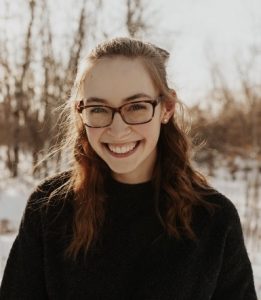
Master of Science - Textiles and Clothing
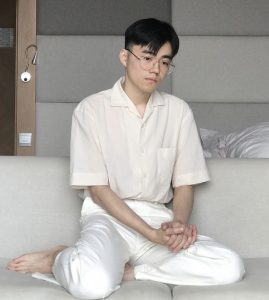
Syu Hua Fang
Project Title: Impact of Textile Finishes on Fibre Fragment Release
Syu Hua's capstone project examined how textile finishes, such as scouring and dying, impact fibre fragment release of warp-knitted polyester fabrics along the production line, as well as the compassion between virgin and recycled polyester filament yarns. The finding showed that due to the weaker physical performance of recycled polyester, a higher level of fibre fragment release was found both via laundering and wear (abrasion). Moreover, the higher degree of finishing promoted fibre fragment release, meaning that fibre fragments are generated during wet treatment to later detach from the textiles via laundering during the first wash, as the release dropped sharply over the sequential washes.
Over the course of the program, Syu Hua had the opportunity, resources, and facilities to broaden his knowledge of textiles and learn to think critically through discussion with his peers. He also enjoyed working with his supervisor, Dr. Rachel McQueen, and is grateful for her guidance throughout the program.
Syu Hua will continue to seek opportunities to bring positive impacts to the global textile industries regarding sustainable supply chain practices and materials.
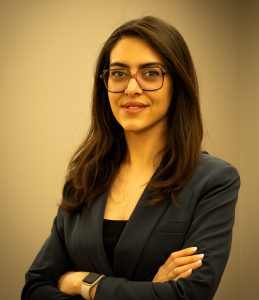
Elika (Elham) Kaviannasab
Thesis Title: Electrospinning of a Nanocomposite Nanofibrous Membrane for Chemical and Biological Protective Clothing Application
Elika’s research explored the integration of nanotechnologies to enhance protective clothing, focusing on developing a nanofibrous membrane that offers effective protection against chemical and biological hazards while maintaining breathability. Current solutions often compromise wearer comfort, prompting the need for innovative approaches. She produced nanofibrous webs through electrospinning, which, owing to their high porosity, surface area, and filtration efficiency, can provide an improved balance between protection and comfort. Polyacrylonitrile (PAN) is used as the polymer matrix for the nanofibres (NFs) due to its electrospinning ease, physical characteristics, filtration quality, and versatility across a range of temperatures. To augment the protective efficiency of the nanofibrous membrane, the research incorporates chemically and biologically active nanoparticles, magnesium oxide (MgO), into the NFs.
Elika has an RA position at the UofA, and she is looking for a job in the industry for the future.
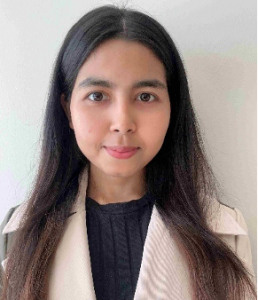
Anita Amir Labonno
Thesis Title: Development and Assessment of N-halamine-based Self-Decontaminating Fabric Finishes
Anita's research explored the development of self-decontaminating personal protective equipment (PPE) using N-halamine as a biocidal agent to minimize the transmission of pathogens among frontline personnel, such as military and healthcare workers. Her study focused on optimizing the halogenation conditions of N-halamine, enhancing its UV stability, and assessing fabric performance. Her research findings revealed that chlorine was the most effective halogen due to its antimicrobial efficacy and ease of application, and the addition of UV absorber nanoparticles enabled higher initial chlorine loading. Anita explored both traditional wet and innovative dry application methods for the finish. The wet application method proved highly effective, achieving over 99.999% bacterial elimination for E. coli. In contrast, the dry method was quicker but less effective in terms of antimicrobial loading.
During her graduate studies, Anita appreciated the guidance from her supervisor. Her interactions with team members, who came from diverse academic backgrounds, not only made the lab a fun workplace but also significantly enriched her learning experience. Additionally, Anita enjoyed the opportunity to present her research at various conferences during her graduate studies.
Currently, Anita is pursuing Ph.D. in Fiber and Polymer Science at North Carolina State University. Her research area involves pharmacokinetic study of dermal exposure to PFAS present in firefighter turnout gear.
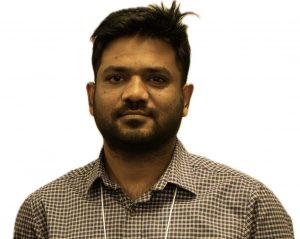
Shakil Mahmud
Thesis Title: Development of Standard Test Methods for Assessing the Durability and Safety of Joule Heating Textiles
The limited availability of standard testing and quality control methods for Joule heating textiles poses challenges regarding safety and expected product service life for end-users of heating textiles such as medical patients suffering from chronic pain, muscle fatigue, diabetic nerve pain, and fibromyalgia. This motivated Shakil to develop a set of test protocols for assessing the durability and safety of Joule heating textiles. His findings specified how the heating profile and electroconductive properties of Joule heating textiles change under real-world simulated damaging conditions and identified the mechanisms via which heating textiles based on different technologies are affected by the simulated aging conditions. These test protocols will allow improving the quality and reliability of heating textiles, thereby lifting barriers that currently limit the growth of the e-textile industry. They will be proposed for adoption as standards by standards development organizations such as the ASTM subcommittee D13.50 and the IEC technical committee IEC TC 124.
The most valuable experience Shakil gained during graduate school was mentoring two undergraduate intern students at the University of Alberta. This experience helped him develop mentoring skills and improve his laboratory guidance and training expertise.
Shakil is currently working as a Research Assistant at the University of Alberta under Professor Dr. Patricia Dolez as part of the A-MEDICO project funded by the Government of Alberta. Shakil is confident in providing a positive contribution to the North American clothing and e-textile markets in the future.

Wing Sem Mak
Project Title: A Comparative Study on the Physical and Performance Properties of Pre-consumer Recycled and Virgin Merino Wools: The Eco-effectiveness of Recycled-Wool Blend Apparel
Wing Sem's study evaluated the physical and performance properties of recycled and virgin wool fibres and their knitted fabrics. She found that the active use length of a recycled wool blend sweater may be shorter than a virgin wool sweater owing to its lower resistance to the stresses of use, irreversible shrinkage, and unfavourable fabric handles such as prickliness and stiffness. To achieve an overall lower environmental impact than the virgin wool sweater, the active use length of the recycled wool blend sweater has to be at least 100 wears. The user’s behaviour is crucial in extending the active use length, as it is related to the lower fabric bursting strength and tendency toward shrinkage compared with the virgin wool sweater. Collecting recycled fibres from a single or designated source could also minimize the diversity of the fibre lengths and diameters and better control the recycled fabric parameters, reducing the prickliness, stiffness, and shrinkage rate of a recycled wool blend sweater.
Wing Sem found her experience in Human Ecology to be precious. She enjoyed presenting at conferences and symposiums, writing a paper with over 100 references, and leading seminars in class. What touched her most was during her volunteer experience at the repair café, where she witnessed firsthand how hard people were working at being more sustainable in their fashion and textiles by mending. Sustainability is not a slogan but a response. While working on the sorting research project supervised by Dr Rachel McQueen, she noticed that most donated garments were in excellent condition, and some were even brand-new items. People might think thrift stores could help them find a new owner and extend their active use length, but there is no guarantee of that. If no one wants it, it may eventually end up in the landfill. The Human Ecology Clothing Repair Café builds the connection between users and their garments, creating unique memories by repairing and mending. She learned the importance of these embedded memories in material items in the material culture class she took with Dr. Megan Strickfaden. Wing Sem feels she has gained more than knowledge in HECOL, but a life-long mission on the eco-effectiveness in our textile industry.
Wing Sem is currently working as an RA in Dr. McQueen's research group while keeping up her own interest in studying wool (you're welcome to visit her webpage). She is also looking for a chance to get back into the textile industry as a knitwear designer/raw material/yarn specialist.
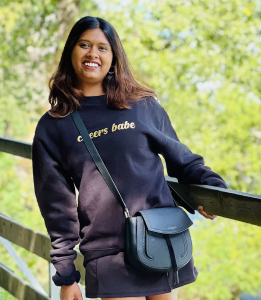
Nadeesha Samaraweera
Thesis Title: End-of-Life Moisture Sensor for Fire-Protective Fabrics and Sensor Manufacturing process
Firefighters’ protective clothing acts as a barrier between them and the hazardous environment to which they are exposed. However, the high-performance fibres they are made of experience a reduction in their performance over time due to exposure to heat, ultraviolet radiation, and moisture. As there are not always visual signs indicative of the fabric’s degradation, we are developing end-of-life sensors to monitor the aging of the protective garments. These end-of-life sensors use a graphene track combined with polymers sensitive to the fabric aging conditions. My thesis covers work related to the end-of-life moisture sensor. The first aspect was related to confirming the suitability of polyimide (PI) as a sacrificial polymer for the moisture sensor. The second aspect involved the manufacturing of the moisture sensor. The configuration of the moisture sensor was designed. And the selection of the materials for the different components of the sensor was revisited.
This was the first time I lived away from home. I received the opportunity to learn how to survive in a new place without my parents. Her most valuable experience was meeting really good friends during my two years at the Department of Human Ecology.
Nadeesha is currently working as a research assistant on an end-of-life sensor project. She plans to become a textile scientist in the future.
Fall 2023
Doctor of Philosophy (PhD)
Josephine Taiye Bolaji
Thesis title: Single Fit Bespoke Bra for Individuals with Atypical Breast Shape/Size: Fabric Testing, Fitting Tool, and Wear Trial
Josephine’s research was aimed at improving the fit, support, and comfort of bras for individuals with voluminous and asymmetric breasts either naturally or due to breast surgeries. In addition, her study highlighted the challenges that these individuals experience with mass-manufactured bras and proposed the need for customized bras to improve their overall satisfaction. Josephine’s thesis included the development of knowledge towards the fabric selection for the bra, the design of a tool needed for the fitting process, and the trial of the fitting process and bra performance by human participants. Her findings indicated that fabric properties, if selected right will improve the quality of the bra, consumers prefer to be the models of their bra, and that customized bras rather than mass-manufactured ones will improve overall satisfaction for individuals with atypical breast shape/size.
During her PhD program, Josephine enjoyed the opportunities to learn and share knowledge. She also valued the support of her supervisor and those of her team members.
Josephine will continue to pursue her passion in textile science research as part of her future plans.
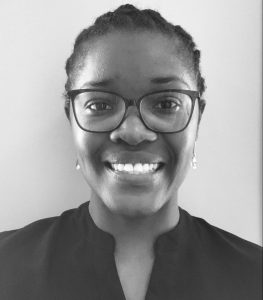
Shanika Donalds
Thesis title: Family Life Courses of Older Caribbean Migrants Living in Canada
Shanika's research explored older Caribbean migrants' perspectives of their family relationships across the life course. Her qualitative descriptive study provides insights into how family relationships, composition and ideas of who is family change over time.
Over the course of her graduate program, Shanika was afforded many opportunities to work on interdisciplinary projects that RAPP was involved with. The experiences from these projects have provided her with invaluable insights into the opportunities of these teams and how bringing different voices and perspectives to the table can enrich knowledge and learning.
Currently, Shanika is the Director of Housing and Client Services at GEF Seniors Housing. Shanika is excited to bring the skills she has garnered during her doctoral research to this role.
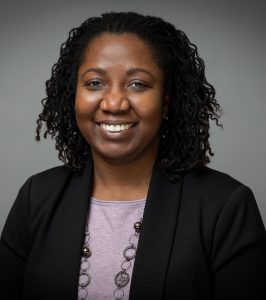
Master of Arts - Material Culture
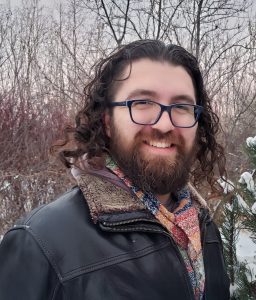
Malcolm Stielow
Thesis Title: Playing in the Pursuit of Reflexivity
Malcolm's work centres around the use of reflexivity in material culture, design practice, and education, and how it can be applied to those areas and more through making, play, and frivolity. His favourite example of this is probably the first peer-reviewed paper he published "Pillow Forts: Teaching Design Through Play and Making" which was developed to teach design principles and spark reflexive thinking, through remote delivery in a playful way. It won best student paper in its conference track at AHFE 2023 and is a piece that he feels he'll always be proud of. His thesis expands upon the same themes as "Pillow Forts" and attempts to ground his reflexive practice in a broad academic context, while still trying to keep the frivolous spirit in it.
When asked about his most valuable experience during grad school, Malcolm said it was working as a TA during the COVID-19 outbreak and helping rework courses to meet online delivery needs. The “Pillow Forts” exercise was developed during this time, and he says he has since overheard the exercise being discussed positively around campus, in places he certainly didn’t expect.
Future plans for Malcolm involve him likely carrying on in academia to some extent, hopefully working toward a PhD at some point. First, he wants to spend some time to complete a few personal projects that got put aside, and maybe do some independent writing and design work, and get his student loans under control. In the future, he would like to expand the work he's started in reflexivity into more applied forms by expanding on exercises like “Pillow Forts” and designing new games, exercises, and tools in that area.
Spring 2023
Doctor of Philosophy (PhD)
Robyn Stobbs
Thesis title: (Im)Material Worlds: An Exploration of the Discursive Construction of the Materialities of Fictional Worlds through Information-in-Social-Practice
Robyn’s interdisciplinary research examined how fictional worlds are built turn-by-turn in the talk of tabletop roleplaying games. Using recordings of live gameplay, she analyzed how players orient to and construct imaginary material settings moment-by-moment, how information is exchanged and who has rights to know and inform these places (as players and as characters), and how references to outside knowledge and other fictional works are used as resources to inform the imagined worlds. Her findings demonstrate ways that information is created and used in everyday activities and how imagined material environments can be collectively constructed.
Robyn found the conversations with peers and faculty and getting to work with people who were so passionate about their research to be the most valuable experience in graduate school. She loves learning about different research methodologies and learning and sharing ways to keep research organized.
Robyn is now the research data management librarian at Athabasca University where she works with researchers to support planning for data handling throughout the research lifecycle, including data sharing and reuse.
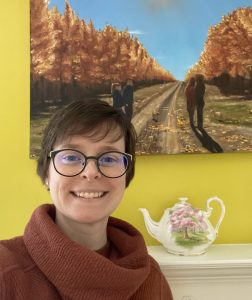
Master of Science - Family Ecology and Practice
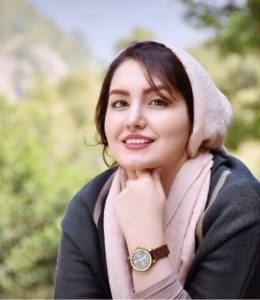
Elahe Ghanbarian
Project Title: Confirmatory Factor Analysis and Measurement Invariance of the Intrasexual Rivalry Scale (IRS) in a Non-Western Culture
Elahe's research focused on couples' well-being, intimate relationships, and quantitative and longitudinal research methods. Her research project sought to provide further psychometric evaluation of the Intrasexual Rivalry Scale (IRS) by exploring the underlying factor structure of the scale and testing whether it measured constructs consistently among men and women. The IRS is a newly-developed measure of self-promoting and rival-derogatory strategies that individuals engage in to derogate or be more attractive than other same-sex peers to gain access to potential mates. The IRS was designed and psychometrically validated to address the shortcomings of previous measures of intrasexual rivalry. She answered the research questions with confirmatory factor analyses and measurement invariance testing across sexes in a sample of 320 women and men. The results indicated that although the two-factor model was the best fit to the data, the IRS failed the measurement invariance testing. Given the centrality of gender differences to evolutionary psychology, the IRS should be modified before it can be used in evolutionary psychology research.
Elahe found the Department of Human Ecology to be a supportive and nurturing environment. She gained theoretical and practical skills suitable for conducting research while connecting with expert researchers in family science. Elahe published several papers in peer-reviewed journals and worked as a teaching assistant in "Interviewing and Counseling, HECOL 315" under the supervision of Dr. Matthew Johnson. Elahe said she felt privileged to interact with intelligent and committed students from different cultures in Human Ecology and valued the opportunity to work with and learn from great academic mentors and professors. The multicultural environment of Canada provided her with the opportunity to improve her English language skills and effectively communicate with people from different cultures.
Elahe’s goals are to work at the Family Center in Canada to help families and children flourish and help people engage with one another to promote healthy, safe and economically strong communities.
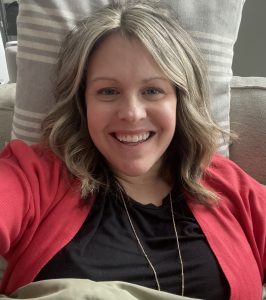
Kelty Heck
Project Title: Dual-Earner Parents and Well-being: How Work-Family Policy Affects Parental Well-Being and Family Functioning
The purpose of Kelty's capstone project was to critically evaluate and examine work-family literature to better understand how work-family policy affects dual-earner parents, their well-being, and positive family functioning. It identified key themes, theoretical frameworks, and limitations within the literature, and explored the impact of COVID-19 on dual-earner parents, their families, and work-family policy. The paper concluded with a list of work-family policy and culture recommendations for broader consideration and implementation by work-family policymakers and employers that will foster positive well-being in dual-earner parents and promote healthy family functioning.
During grad school, Kelty found she valued the perspectives of her classmates and professors during class discussions about literature.
Kelty is currently the Student Recruitment Director and Assistant Registrar at the University of Alberta.
Master of Science - Textiles and Clothing
René Arredondo Campos
Thesis title: Textile fibre fragments in marine environments and their interaction with suspended hydrocarbons
Renè's research aimed to identify if fibre fragments from natural and synthetic fibres would interact to different degrees with pollutants suspended in water. There was a focus on polycyclic aromatic hydrocarbons (chemical byproducts of fossil fuels' combustion), which are abundantly emitted in the vicinities of urban centers, and their uptake rate by the three most commonly used textile fibres; polyester, cotton and polyamide. The results showed that these pollutants have a higher affinity towards synthetic textiles, which can act as a sinkhole or a vector into the food chain in aquatic environments. However, natural fibres like cotton can play the same role despite their faster degradation times.
Renè valued being able to participate in multicultural and multidisciplinary research groups, which provided a nurturing environment to develop and improve skills in both daily and academic lives.
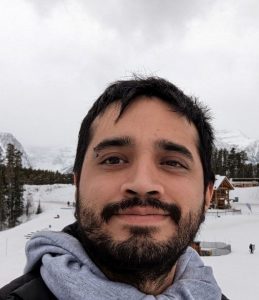
Anil Kumar
Project title: Microplastic pollution caused by domestic laundering: Consumer awareness and willingness to accept solutions
Having spent some time in the textile industry and learning about its environmental impact, Anil was interested in exploring sustainable practices and innovative technologies that can mitigate the environmental impact of the textile industry. Microplastic pollution has been recognized as an emerging concern as they are ubiquitous in our environment, having been found in the air we breathe, the water we drink, and the food we eat. His project was to understand whether Canadians are aware of the problems microplastics pose to the environment, the role domestic laundering plays in increasing microplastic pollution, and consumer willingness to accept technological and policy-based interventions to reduce the release of microplastics in the environment. It was found that Canadian consumers were largely unaware of the significance of microplastic pollution from clothing and domestic laundering. The project identified a need to make current technical solutions more ‘user friendly’ and to develop effective non-coercive intervention strategies to incentivize pro-environmental behavioural change.
Grad school was a transformative experience for Anil. Returning to school after a decade of working in the apparel industry was not easy, but the challenges he faced led to his professional and personal development. He valued the opportunities to exchange knowledge and viewpoints with fellow scholars. These interactions broadened his perspective and exposed him to novel ideas that enriched his research endeavours.
Anil would like to express his deepest gratitude to Dr. Rachel McQueen for her exceptional guidance, mentorship, and transformative impact throughout his journey in grad school. Her patience, approachability, and willingness to listen have significantly impacted his confidence and overall well-being. Working under her supervision was an invaluable experience contributing substantially to his personal and professional growth.
Anil is now working as a Raw Material Specialist at Mountain Equipment Company, popularly known as “MEC.” Working at MEC aligns well with Anil’s passion for sustainability. MEC provides a platform to contribute to a more sustainable future through strategic product development, operations, and practices. He wants to focus his career on advocating for the use of sustainable materials and practices in the apparel industry.
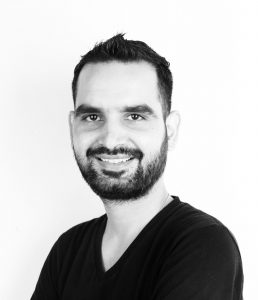
Fall 2022
Doctor of Philosophy (PhD)
Chelsea Freeborn
Thesis title: Learning "In Relations:" Engaging with Decolonization in Early Learning and Child Care
The purpose of Chelsea’s research was to contribute to the limited understanding of potential indicators of quality in early learning and child care and the dispositions of educators working with Indigenous families in an urban setting. Weaving together three studies, this multi-paper dissertation identified current literature regarding indicators of quality in early learning and child care, and determined how quality for Indigenous children and families might be shaped by child care contexts, including educator dispositions, pre-service learning environments, and engagement in decolonization work.
During her PhD program, Chelsea valued the opportunities offered to share knowledge, perspectives and understandings with faculty members and other students. She loved learning from others and gaining new insights and perspectives. She also appreciated the opportunities granted to her through working with and being mentored by her PhD supervisor, Dr. Rebecca Gokiert.
Chelsea is now working as a faculty member in the Department of Sociology at the University of British Columbia.
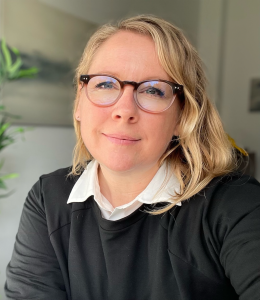
Master of Science - Family Ecology and Practice
McKenna Oleksuik
Thesis title: Virtues, responsible actions, and sexual well-being: A latent profile analysis
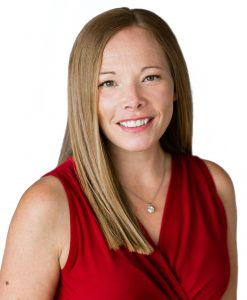
Laura Woodman
Thesis Title: Supporting Quality and Longevity in Alberta’s Family Day Home Educators: A Qualitative Study
Laura’s research explored the strengths and challenges of Alberta's family day home educators using a community-based participatory approach (CBPR). This study found that day home educators have many strengths, including enjoying their work, networking and problem-solving, and advocacy. Challenges are guilt and worry leading to minimizing time off, day homes being treated the same as day cares, and misperceptions. Areas that can act as a strength or a challenge include relationships, inclusivity, and continuing education. This study’s findings contribute to knowledge about day home educators strengths, challenges, and supports, enabling them to offer quality and longevity in childcare. Consistent with a CBPR approach, the results of this research should prompt targeted practice and policy change for educators and their support systems, which will benefit children and families, and ultimately contribute to a stronger, more cohesive and healthy society.
During grad school, Laura valued connecting with other scholars, learning about a wide array of topics, and taking advantage of every opportunity possible. She is particularly appreciative of the support she received from her supervisor, Dr. Adam Galovan, as well as influential professors, including Dr. Rebecca Gokiert, Dr. Ken Caine, Dr. Kat Danser, and Dr. Nancy Galambos. Their interdisciplinary approaches and excellent teaching have strongly supported her as a human ecologist.
Laura is now embarking on her PhD at the Department of Human Ecology, where she will continue to examine child care.
Master of Science - Textiles and Clothing
Sabrina Marsha
Project title: Wash it, or wear it? Perceptions of odour control technologies on activewear and their influence on the likelihood to launder
The purpose of Sabrina’s research was to examine the role that antimicrobial and anti-odour treatments on activewear clothing have on consumers’ decision-making when it comes to laundering frequency. Sabrina tested this by creating an experimental survey which featured a hypothetical clothing company called “Fresh Clothes” and distributing it to participants. Participants were randomly assigned to one of the three groups (i.e., control, antimicrobial treatment, anti-odour treatment). Her research findings indicated that an antimicrobial or anti-odour treated garment is not likely to be washed any less often than a garment that does not have such a treatment. In other words, individuals are not likely to wear an antimicrobial or anti-odour garment for a greater number of times between laundering, than a standard activewear garment. The findings from the experimental section and the reported behaviour suggest that consumers do have their own habitual or ingrained practices for when the laundry should be done. There was evidence from the current study that consumers do treat different types of garments differently in terms of how often they wear them before washing.
Sabrina is currently working at Davey Textile Solutions as a weaving/warping technician. Her future plans are to increase her textile expertise through her experience and knowledge gained within the textile industry and be in a position to consult for the industry one day.
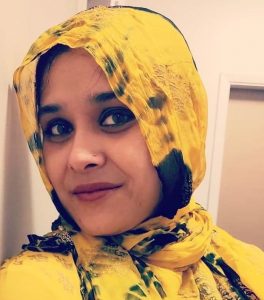
Spring 2022
Doctor of Philosophy (PhD)
Razak Oduro
Thesis title: Organizing Against Poverty in Edmonton: A Case Study of EndPovertyEdmonton Movement Organization
Razak's research examined the antipoverty efforts and social movement-building approach of EndPovertyEdmonton. In the context of poverty, social movement organizing refers to groups of actors working together as a collective and in a coordinated manner to change fundamental structures that reinforce poverty. Using a case study methodology, and generating data through one-on-one interviews and a document review, findings from the study offer insights into the dynamics, strategies, and contexts of antipoverty organizing in Edmonton.
When asked what were highlights during his graduate school experience, Razak said that he had the privilege of meeting intelligent students who are committed and inspired to see a genuine change in the world. The interactions with fellow students at Human Ecology were remarkable, bringing forward innovative ideas to make people live dignified lives. The opportunity to work with great academic mentors and professors cannot be over-emphasized. Learning from incredible Human Ecology professors motivated him to strive for excellence. His life has been enriched by the remarkable intellectual setting that grad school offers.
Razak is now a Policy Analyst at Alberta Health and looks forward to a bright future where he can further use his skills and knowledge to drive policy success.
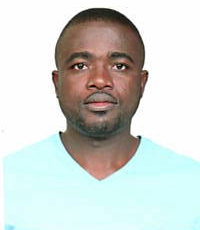
Master of Science - Family Ecology and Practice
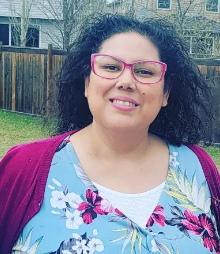
Patricia Jabonero Escobar
Project title: Intercultural Education in Global Communities
Helping immigrants integrate into Canadian society facilitates their chance to adjust to Canadian culture, especially those immigrants that come from non-English speaking countries. To address and solve this issue Catholic Social Services, specifically its Intercultural Education team, aims to help immigrants by offering support through workshops for individuals and families. As part of her practicum experience, Patricia was fortunate to work with this team, taking the role of leading a program to support adult Latino immigrants. As part of her responsibilities, she was also tasked to draft a document presenting the program’s objectives and identifying future required actions for the team to achieve those objectives and needs, and also to assess the value of the program.
One of the most valuable learning experiences Patricia had as a graduate student was the ability to develop her professional preparation while enhancing academic learning and professional practice. Grad school helped her to achieve a greater understanding and awareness of the norms and values of a profession in the helping services, especially in relation to multicultural competence, and communication skills.
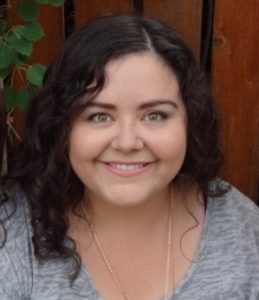
Sabrina Mussieux
Project title: Youth Focussed Community Programming
Sabrina finished off her master’s degree with a practicum at The Family Centre where she worked alongside the Youth Liaisons as part of the Neighborhood Empowerment Team (NET), a collaboration involving The Family Centre, the City of Edmonton, the Edmonton Police Service, and the United Way. NET works with communities and youth across Edmonton to develop programs that address incidents that involve youth, and which pose a threat to the safety and security of community members.
During Sabrina’s practicum she took the opportunity to apply classroom learning to a variety of activities including background research for NET projects, conduct surveys, analysis of data, and the development of newsletters. As well, she contributed to social media and the creation of project materials. For her independent project she completed a review of literature about youths’ usage of public spaces. The review provides the Youth Liaisons with up-to-date and valuable information that they and the NET stakeholders can draw on in their ongoing work with youth and communities.
Sabrina states that her practicum facilitated the development of practical skills that she can take into other work environments. She is grateful to have had the opportunity to work with the Youth Liaisons, gain skills, and learn about a variety of ways in which she can be an involved community member.
Currently, Sabrina is employed as an undergraduate student advisor in the Alberta School of Business.
Master of Science - Textiles and Clothing
Skylar Brown
Thesis title: Examining the Potential for Bacterial Build-up on Apparel Fabrics with Repeated Use - A Laboratory Study
Skylar’s research explored bacteria build-up in apparel fabrics with repeated use/laundering cycles. She was also interested in determining how laundering affects the removal of bacteria from fabrics with different fibres types and whether bacteria transfer between textiles during the laundering process. Key findings suggest that despite the expectation that bacteria would build up as the number of inoculation/wash cycles increased, there was no evidence for this in the current study. While laundering was found to reduce the bacterial levels in textiles, it was not sufficient to remove bacteria entirely from all specimens.
Skylar states that her most valuable experience during graduate school was the opportunity to engage in the research process to gain a clear understanding of project design and methodology.
Currently, Skylar is focusing on expanding her embroidery and textiles business with a keen eye toward conservation.
Fall 2021
Master of Arts - Material Culture
Katelin Karbonik
Thesis title: Clothing the Medieval Body: A Reconstruction of the Pourpoint of Charles de Blois
Katelin’s research involved re-making a very rare surviving 14th-century garment and then she had a participant wear it. This allowed her to explore this unique garment from the perspectives of both maker and wearer. She found that this garment was cleverly constructed to maximize aesthetic impact and used a limited amount of likely very costly fabric (the original fabric was made with gold-wrapped threads afterall)! Through the wearing process, she learned that this garment could afford a wide range of motion particularly in the shoulder area, which runs contrary to many assumptions about historic dress as being restrictive.
Katelin described the conversations with and mentoring from faculty as being some of the most valuable experiences she had at the department. That and the conversations with her peers! It helped keep everything in perspective.
Katelin is currently working as curator of a clothing and textiles collection at the Red Deer Museum + Art Gallery. She also teaches sewing courses at Gather Textiles in Edmonton. Katelin plans on pursuing a Ph.D. in the future. So she’s currently browsing programs to see where she might want to go.
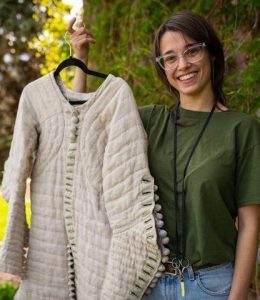
Amanda Jurgens
Thesis title: Home Economics as an Education in Material Relationships: What Curriculum Guides, 1956 and 1969, tell us About Girls, Women, Homes, and Dress
Amanda's research began with the question; how do home economics clothing curriculum guides (Saskatchewan, 1956 and 1969) present dress and clothing as a subject area? Study of the curriculum guides revealed the ways in which three main areas were presented to students as a part of a home economics course: Dress, the home, and the body. Her research illuminated a shifting emphasis in the curriculum guides from the family (1956) to the individual (1969). The findings are significant in reflecting upon the influence of past curriculum guides on today’s curriculum guides as well as in considering the effect of interdisciplinary study on the perception of Human Ecology/Home Economics.
Working with other individuals who were passionate about Human Ecology was the most valuable experience Amanda said she had during grad school.
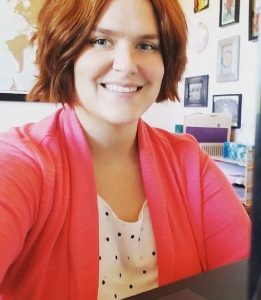
Master of Science - Family Ecology and Practice

Kareema Batal
Project title: Breaking the Barriers to Socially Conscious Business in Edmonton
Kareema's research explored the barriers and facilitators local business owners face in adopting socially conscious business practices. The goal of her research was to understand what factors play a role in supporting small businesses to engage in socially conscious business behaviour, using Edmonton businesses as a local case study.
Kareema says she was fortunate to work as a Teaching Fellow in the Peter Lougheed Leadership College on campus. This combined teaching, professional development and relationship-building experience was the highlight of her graduate student experience.
As an entrepreneur in Edmonton, Kareema spends most of her time running two businesses - Neo Juicery and Cafe Neo. She explains that since she has acquired a great deal of knowledge from her graduate research she is using that knowledge to enhance her practices as a business owner toward making the two Neo's socially conscious businesses and apply the practices she has spent the last few years researching.
Kareema also states that she's thrilled that she chose to do her graduate studies in Human Ecology. At first, she wasn't quite sure how her interests as an entrepreneur lined up with the work of family studies in HECOL. However, it didn't take long for her to learn that Human Ecology as a discipline is not only interdisciplinary and far-reaching in its application, but due to the holistic nature of the HECOL philosophy of practice, she has been able to apply it as a foundational lens through which she has been able to grow as an entrepreneur.
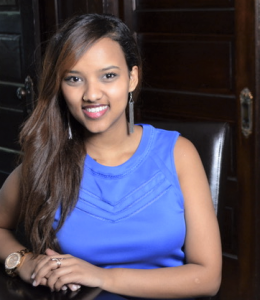
Semhar Berhe
Project title: Immigration and the Canadian Employment Experience: Canada’s Role in Integrating the Skilled Immigrant
Semhar's research focused on the post-migration experience of individuals who immigrated to Canada under the Skilled Worker program. She found that these skilled immigrants are often under/unemployed despite their extensive knowledge, abilities, and achievements pre-migration. There remains a gap in expectations pre-migration and post-migration for skilled immigrants, leading to the underutilization of skilled immigrants' gifts and abilities.
Semhar explains that one of the most valuable experiences she had during her time as a graduate student in Human Ecology was the ability to engage in discourse with other graduate students and professors. She found that the environment of grad school fostered social cohesion, leading toward a greater goal: improving the lives of all people!
Semhar is currently working as a Global People Policy Specialist at a Fintech company based out of Ontario.
Master of Science - Textiles and Clothing
Lauren Degenstein
Thesis title: Integrating Product Stewardship into the Clothing and Textile Industry: A New Zealand Case Study
The clothing and textile industry has become one of the world’s greatest polluters as tremendous volumes of clothing are produced, used, and disposed of at alarming rates. The industry must transition from its linear take-make-waste model towards a circular economy where textile products are kept in circulation and waste is minimized or eliminated. Product stewardship, a strategy where stakeholders take responsibility for the environmental impacts of products through design to the end-of-life stage, is one option to enable the circular economy. Lauren's thesis research explored stakeholder perspectives on product stewardship for clothing and textiles in New Zealand. Key findings suggest that product stewardship operating within the current linear system can only go so far; changes must occur at every stage of the value chain with all stakeholders making efforts towards circularity. Furthermore, the results highlight the importance of contextual factors and capacities for tailoring regional product stewardship schemes to local needs.
The most valuable experience during grad school came from saying “yes” to the opportunities that came Lauren's way, whether it was taking a course outside of her department, working on different research projects, or joining a students’ association. These experiences allowed Lauren to learn from others with different perspectives and shaped how she approached her own research.
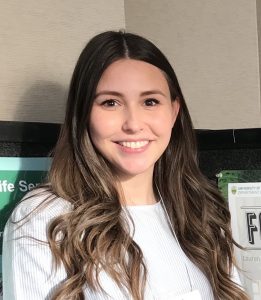
Ikra Shuvo
Project title: Impact of Different Boundary and Ambient Conditions on the Heating Behaviour of Joule Textile Heaters
Ikra’s research was aimed at characterizing the effectiveness of joule heaters used in smart heating textiles. He developed two mathematical models – one for the heating and one for the cooling profile curves – of joule heaters while investigating the impact of different boundaries and ambient conditions on the heating behaviour of joule textile heaters to describe the dynamic heating and cooling behaviours of a textile joule heater. The robustness of his models was assessed by testing different technologies of textile heaters with a series of boundary conditions inside a controlled humidity chamber and a conditioning room under different ambient conditions (i.e., relative humidity and temperature). Ikra’s models were able to successfully describe the dynamic behaviour of the tested joule heaters and could be used to develop criteria to characterize the heating efficiency of smart heating textiles.
Ikra stated that the most valuable experience he had while studying at the department was the academic ecosystem and learning from different faculty within the department. Now Ikra is pursuing his Ph.D. at the Massachusetts Institute of Technology (MIT). He is also a tenant of the Center for Nanoscale Systems (CNS) at Harvard University. His research field is in Biomedical Engineering, and he currently focuses on designing piezoelectric-based biomedical devices using MEMS (micro-electromechanical system) fabrication technologies.
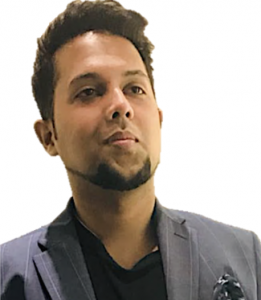
Diana Yehia
Thesis title: Investigation of Support Fabrics for Graphene-Based End-of-Life Sensors for Fire Protective Garments
Fire-resistant (FR) fabrics used in protective clothing experience a reduction in performance because of ageing. Yet there are generally no visible clues before the loss in performance has reached a dangerous level. To solve this issue, a graphene-based end-of-life (EOL) sensor is being developed at the University of Alberta which will be placed as a patch on the protective clothing’s surface to indicate when an FR fabric has reached an unsafe level of performance. As part of this larger research, Diana’s thesis aimed to identify the most suitable fabric to serve as a support for the EOL sensor. This support fabric should be flame-resistant, washable, and withstand ageing conditions (e.g. temperature, ultraviolet light, and moisture) without degrading. A series of FR fabrics made of different materials were subjected to accelerated ageing at specific conditions. Based on the behaviour observed for the different fabrics tested, an aramid fabric was identified as the best material candidate because of its superior performance after exposure to accelerated thermal ageing and good resistance to hydrothermal ageing and accelerated laundering.
Diana stated she really valued the experience she had as a graduate student working on her thesis project. This experience enriched her with many skills such as organization, time management, self-discipline, critical thinking, presentation and lab skills. The advantage of working in PCERF’s lab and the freedom she had in conducting experiments developed her experimental and analytical skills and developed her interest further in the topic of protective clothing. She feels fortunate to have had such a great support system, with her supervisors, and the other students – who are now her friends.
Diana is currently a weaving technician and research assistant working on the commercialization of the graphene sensor at Davey Textile Solutions. In the short term, her main goal is to gain more textile industry expertise and obtain as many valuable insights as she can, in addition to getting leadership training. In the long term, she aspires for a management role and perhaps obtain another degree related – or not – to textiles!
